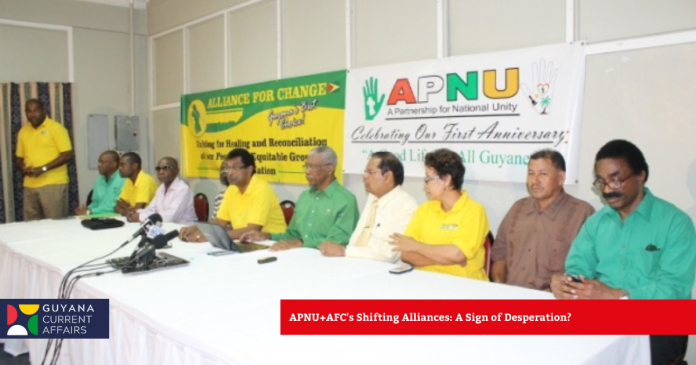The ongoing negotiations between A Partnership for National Unity (APNU) and the Alliance For Change (AFC) for a potential coalition ahead of Guyana’s 2025 elections reveal a complex and inconsistent political landscape, potentially signaling desperation from both parties.
Inconsistent Positions
- On-again, off-again alliance: The AFC and APNU signed a Memorandum of Understanding (MoU) in January 2025 to explore a pre-election alliance. However, shortly after, AFC leader Nigel Hughes described the agreement as being on “life support”.
- Shifting leadership claims: While PNCR leader Aubrey Norton initially hinted at being open to not leading a future coalition, the party seems to be asserting that it must have the Presidential Candidate.
- AFC’s wavering stance: The AFC decided not to renew the Cummingsburg Accord with APNU in 2023, but is now reconsidering a coalition for 2025.
Last-Minute Scramble
- Tight deadline: The parties have set a March 31, 2025 deadline to decide on coalescing, leaving little time for substantive negotiations.
- Conditional engagement: AFC Chairman David Patterson outlined several conditions for resuming talks, including putting aside personal preconditions and developing a clear political platform.
- Open-ended leadership: Hughes has now suggested that the presidential candidate doesn’t necessarily have to be himself or Norton, opening the door to other possibilities.
Analysis
This shifting political landscape suggests:
- Desperation for power: Both parties seem willing to compromise previous positions to increase their chances of electoral success.
- Lack of cohesion: The frequent changes in stance indicate internal disagreements and a struggle to present a united front.
- Potential voter skepticism: The inconsistent messaging may erode public trust in the coalition’s stability and effectiveness.
As the 2025 elections approach, APNU and AFC’s ability to form a coherent and convincing alliance remains uncertain, potentially weakening their position against the ruling PPP/C government.


